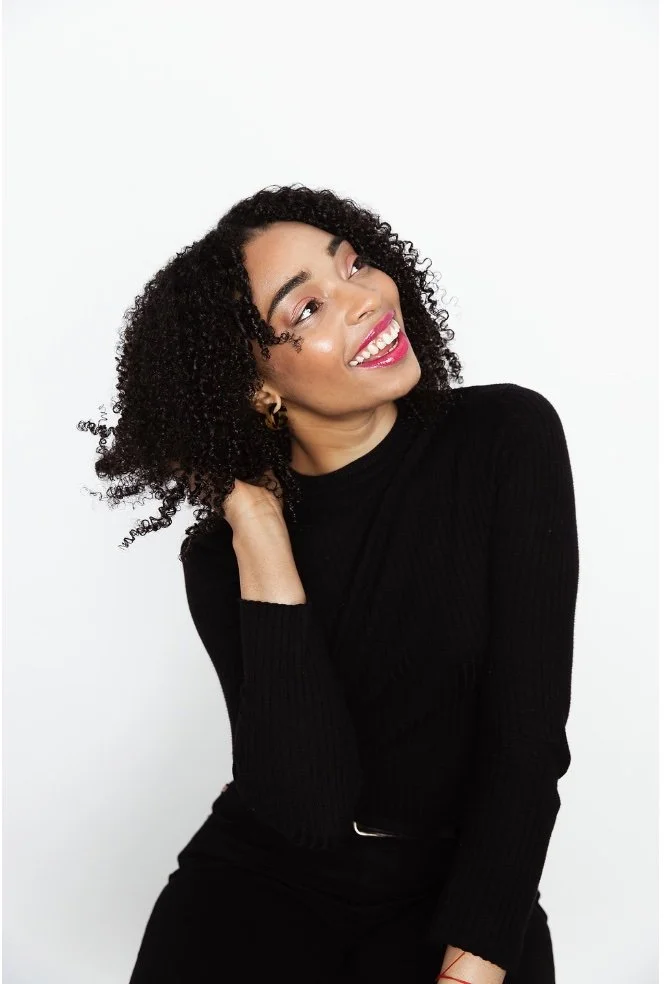Jiya Pinder, founder of We the Diaspora (All rights reserved to owner)
Jiya Pinder is the founder of We The Diaspora, a cultural memory organization dedicated to preserving and celebrating the stories, histories, and everyday moments of the global Black diaspora. Through digital archiving and community storytelling, she creates space for Black people to document their lives on their own terms. Jiya’s work honors the past while shaping the future, bridging memory, culture, and media to ensure our stories live on with intention and care.
You first discovered your love for vintage photography on Tumblr, influenced in part by your grandmother’s role as the family archivist. Then in 2020, amid the BLM protests, you transformed that passion into purpose by launching We the Diaspora on Instagram. What inspired you to create a platform centered on cultural reconnection and heritage? And why do you believe it’s essential to make these collective memories visible and accessible to the public?
JP: For me and for everyone, between COVID and the racial justice movement and the protests that were going on in 2020, it was a lot. During that time, I felt like there was so much imagery of death and Black trauma. I had so much free time, so I fell back in love with Tumblr. Look through vintage photography, and I created this page, “We the Diaspora”, just as a way to escape from everything, not thinking that it would turn into what it has turned into.I wanted to share photography that wasn't about Black trauma, and granted, there's a space for that, and I think it's so important to talk about the resilience of the Black community, our triumphs. I wanted to create a space where we could discuss the everyday, mundane moments or even the family memories that help keep us going. I've created the platform to make sure that we focus on our similarities across Black cultures, but also to honor our differences and talk through the through lines of what it means to be Black in Haiti versus what it means to be Black in Mississippi and just kind of the common ways that we operate as a people. Everything from sitting on our front porch, to getting your hair braided, to cookouts during the summer, I wanted to capture those moments that made me happy and elated to be Black.
It's important for Black people, especially, to tell their stories from their own voices. That's what made me create it, and I think making sure that we lean into the collective memories and make this work accessible to the public, as a reminder that counters the narratives in the media and the traumatizing images or things that can show up. It's essential to ensure that people have access to our living archive of stories and that we are not creating definitions of what Blackness is, allowing everyone to show up as themselves. That's what made me kind of fall in love with this work, and I'm excited to see it grow.
Historical pictures curated by Jiya Pinder (All rights reserved to owner)
Balancing creative projects alongside corporate roles isn’t always easy. How did your time at Black Futures Labs and Color Of Change influence your perspective and help build the skills you use in your work today?
JP: My time in the nonprofit space provided me with the structure for understanding how storytelling sells, but also how we can use storytelling, particularly in the case of the diaspora, as a tool for community building. I took from my experience in those roles how to put together a series and campaigns around storytelling. For instance, when I was at Color of Change, I was able to put together a series called The Essential Workers Project. I interviewed different people from their perspectives on how COVID was affecting them. I talked to a mutual aid founder, a nurse, two teachers, a small business owner, and a college student. It was a fun campaign, especially in the midst of COVID and all the surrounding events, because we were able to put a face to some of the narratives and stories circulating about how people managed to live during the pandemic.
I took my digital marketing experience to be an influence on my storytelling. I use social media and visual storytelling as a kind of more community-driven call to action to amplify our message that Black stories matter and that memory is power. My background in creating comprehensive campaigns helped me make sure that We the Diaspora resonates with people in the right way.
“ It's important for Black people especially, to tell their stories from their own voices.”
- Jiya Pinder
In a recent interview, you opened up about your experience with imposter syndrome. How do you manage those feelings and keep pushing forward in your creative journey?
JP: Imposter syndrome is like a gentle breeze that comes and visits you every week or two. In the Caribbean, we say, “it's water off your back,” you just need to let the water flow off of you. In a way, I try to let that happen, but it is something that happens a lot for me. People look at me and say “you've been doing this for a while now, and you're doing so well.” But it's so easy for any creative, or anyone in general, to get in their head. I manage those feelings by staying rooted in my purpose and building the platform. I'm able to lean into a community when I do have those imposter syndrome moments, who remind me and reel me back in. As a creative, we can be in our heads too much: “I have this plan, I'm doing this, this is what's happening next month, is it right? Have I looked at this too long? Is this graphic off?” And sometimes we don't have anyone else. Especially in the early stages of building a business and building a brand or an organization or anything, we don’t have anyone to lean on, you know. I don't have anyone to be like, “Can you gut check this for me?” It's me doing all of the gut-checking.
It's been important to build a community that I can gut check things with, and talk to when I'm having a bad day, people who see the vision even when you don't, and remind you of the value of what you're creating. It can be so easy to forget and lose touch, because things always go wrong, and the bumps will lead to those moments of being like, “Is this even worth it?” But it so is, and these serendipitous good moments come out of nowhere. And I think, for me, when I do get really down bad, I'll look at some of the beautiful submissions I've received and comments that I've gotten, of people just sharing how much the platform has led to them looking into their own family archive, or reflecting on their own community and how they can document and preserve their culture. And so, those moments really lead to me feeling a little bit more grounded in my purpose and the work that I do.
Another reason why I do this is for my grandmother, as an ode to her as an archivist in a time when there wasn't language for that, and she took the time to record our family stories and put together a family tree. In order to overcome my impostor syndrome, I think of this as a work that I'm doing in reverence of my ancestors and those who came before me.
Jiya Pinder, the creator and curator of We The Diaspora, looks at historical photos. (Tina Pinder)
You launched We the Diaspora with the resources you had on hand. How would you advise someone to start cultural preservation work when resources are limited? Are there any tools or platforms you recommend that people might not know about?
JP: It was just a fun project for me, but I started with what I had—that was a deep love for Black photography, Black stories, and access to social media and a phone. I would say you don't need the fancy equipment or a specific grant to begin. I think you just really need to be intentional and consistent. I will add that I have taken maybe a year off during my time working on We The Diaspora, and came back to it, so it is ok sometimes to take breaks, but it's important to always come back to the work, especially if it really resonates with you and your purpose in this life. Just start with what you have, and use what you have. We all have our own buckets of memories and photos from our childhood and family stories, and if not, community stories, so begin there. Record if you want to start recording in your life, and make sure that you're archiving your own life as it is right now. Sometimes people think that cultural preservation is more focused on just the past, but it really is sometimes about recording the moment right now. It also depends on what niche you're interested in, so take the time to just sit and meditate on what you want to focus on, what brings you joy, what moves you, so that you can go from there.
Some tools I would recommend:there's an app called StoryCorps that can help you with recording and archiving interviews. Those can be submitted to the Library of Congress. I sometimes use Airtable to help organize photos, documents, and interviews. I'd also recommend getting an external hard drive as a backup, because you're gonna need space, and also as a way to protect your digital archive. Lean into starting with what you have, and that is the most essential part of it.
What role does representation play in helping the next generation believe that their dreams and aspirations are truly possible?
JP: Representation plays such a crucial role in allowing people to see visual proof that success is attainable. We are creating the language of what memory work and community work look like right now in the landscape of the world that we're living in. When young people see people who look like them and speak like them, and come from similar backgrounds in leadership or in other roles, it kind of expands what they see as possible. And not only that, I think it just affirms you and your identity. Sometimes you see certain people online, or you learn about the work of certain people, and it motivates you to be like, “Oh, if they were able to exist in this—the beauty of who they are—then I can, too, you know.” And I think it's important to help expand the imagination of what Black people can do by doing things that are off the walls and living in a way that honors our truth, because for a lot of our ancestors, they weren't able to live in this way that honors what they really wanted to do. Representation shows that you can show up as your true self and find ways to live and make money in a way that honors your truth as a person. I hope that it's also creating pathways for people to grow into themselves and build confidence, and most importantly, foster a sense of inclusion and belonging.
Want to hear more amazing stories like this? Check out our “More of Us” series! If you want to connect with Jiya and support the work she is doing, follow her on social @jiyapinder and her business, @wethediaspora | We the Diaspora.



